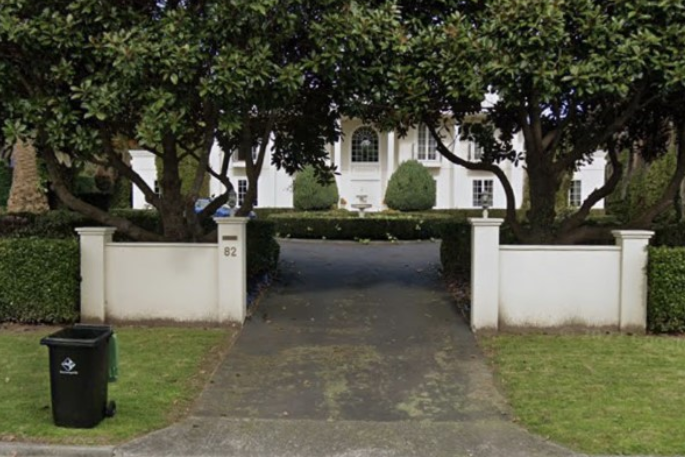An award-winning businesswoman has been ordered to sell her multi-million dollar Bay of Plenty homes to settle a debt of $10 million, involving what a judge described as her 'record” profit from 'improper activities.”
Attempting to bring an end to a 15-year bitter family saga and multiple court hearings in Māori Land Court jurisdiction, on March 1, High Court Judge Harvey agreed to an enforcement order against Rae Beverley Adlam, which includes the sale of two properties in Tauranga and Pukehina valued at $4 -5 million.
Proceeds of the sale would go to trustees of Savage Papakāinga Land Trust to partly settle the money Adlam owed from syphoning money from geothermal plants on trust-owned land in Kawerau for her personal use.
Adlam was orignally ordered to repay the trust amounts totalling approximately $15m in a 2014 Māori Land Court judgement.
To date, the trust has received $4.7 million, and trustees sought the latest High Court judgement to enforce the outstanding judgment debt of $10,453,491, by way of sale of her two properties.
Adlam lives in one property, a home in Tauriko, while her son resides in the beachfront home in Pukehina. Her lawyers argued that a sale would leave her 'homeless” as a 76-year-old superannuant with limited assets and income.
Adlam was made a Member of the New Zealand Order of Merit for services to business in 2008. She was named businesswoman of the year in 1986.
She was the driving force behind the $10.5m Ngati Tuwharetoa (Bay of Plenty) Treaty of Waitangi settlement in 2005, and became the settlement trust's chairwoman.
In 2008, she was suspended by the Māori Land Court as a trustee of the Savage Papakāinga Land Trust after she admitted taking trust funds for her own use.
Adlam did not dispute that there were findings against her of breach of trust and accepted that the Māori Land Court found she profited from her role as a trustee, when she managed investments in geothermal properties in Kawerau.
She argued that without 'her skill and expertise” the development would not have happened, and pointed out that the trust received annual income.
She disputed that she had used all the money for her own benefit, but the court heard that she may have received personally approximately $5 million, of which some $2 million was spent on legal costs.
Adlam's lawyer said that due to issues over record keeping, she cannot account for what happened to the rest of the money.
Judge Harvey said this was not a 'a satisfactory situation”.
'Indeed, in the circumstances, given what was at stake, it seems surprising that more care was not taken to secure and preserve such important records.”

Kawerau, Bay of Plenty, was the town where Adlam invested trust funds in geothermal businesses. Christel Yardley/Stuff.
Adlam's lawyer also requested that principles of tikanga – which could involve resolution outside court – should apply, given that Adlam and the trustees were all close whānau, that she had acknowledged her 'error” and had attempted within her present means to repay as much of the debt as possible.
Judge Harvey disagreed, noting previous attempts at mediation had failed, and that Adlam's wrong doings were a record in Māori land court proceedings.
'At a minimum, Mrs Adlam has acknowledged that she has profited by $3 million from her breaches of the most fundamental of trust obligations–the duty of non-conflict and the duty not to profit. That must be a record in the Māori Land Court jurisdiction, in modern times at least, for any fiduciary to have profited from improper activities to such a degree,” he said.
'Tikanga cannot provide a haven for such misconduct.”
The only just ruling under both tikanga and the law of the court, would be to allow the trustees to pursue the debt enforcing Adlam to sell her properties, he said.
'The alternative would be to allow Mrs Adlam to effectively avoid responsibility to the trust for in excess of $10 million in circumstances where she continues to fail to provide a proper accounting for the loss or use of those funds. That can hardly be a just outcome, either in ture Pākehā or tikanga terms.”
In delivering his ruling, Judge Harvey noted that the trustees had been deprived of their money, while Adlam and her family continued to live in the houses.
'It is difficult to see how it can be justified that the trust, being deprived of so much of its money for so long, should countenance the prospect of Mrs Adlam's family continuing to benefit from her misconduct in circumstances where, even if the properties are eventually sold, the trust will still be receiving less than the full amount of the judgment debt.”
As well as the five court hearings involving the disputed debt, Adlam is a convicted fraudster.
In 2012, she was convicted of 24 charges brought under the Tax Administration Act and fined $75,000.
She was convicted and discharged on nine charges of knowingly filing false GST and income returns in the name of Onepu Geothermal Energy and was ordered to pay Inland Revenue $133,000 in reparations.
When asked for comment at her Bethlehem home, Adlam said: 'All is not as it seems, there's more truth to come out.”
She declined to elaborate but when asked what she thought of her house having to be sold she said:
'They will be.”



4 comments
Sounds like justice to me
Posted on 03-03-2023 22:31 | By Womby
Nice piece of research and reporting Well done New Zealand justice system
Smoothie
Posted on 04-03-2023 08:06 | By hawehi
Take her to the cleaners...lock,stock and barrel...you deserve no sympathy...people should never treat their whanau like that.
not the only one
Posted on 04-03-2023 14:04 | By terry hall
there are more like her in the closet. i know somebody who owns multiple propertys rented worth millions all in a trust, you guess.
She wants tikanga?
Posted on 04-03-2023 14:30 | By morepork
After admitting her "error". There was no "error" it was deliberate, brazen theft, driven by greed, with no consideration for anyone except herself and her whanau. Betrayal of trust of the worst possible kind. Anybody else would be facing jail and no appeal to "tikanga" would be available. She seems to think that "tradition" would understand her case more favourably. In fact, depending on who the chieftain was, there's a fair chance that anyone who betrayed the iwi like that, would be summarily executed (or enslaved for the rest of their life...). She should be thankful she has been judged according to the Democratic Law of the Land, and NOT by tribal tikanga. The judge got this one right on the button. And why is the prospect of her being a 70+ living on the pension, presented as a terrible consequence? Many of us have to do this.
Leave a Comment
You must be logged in to make a comment.